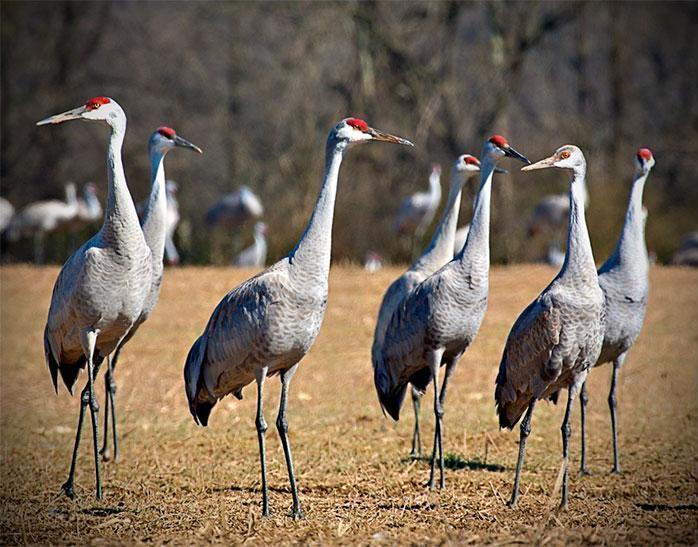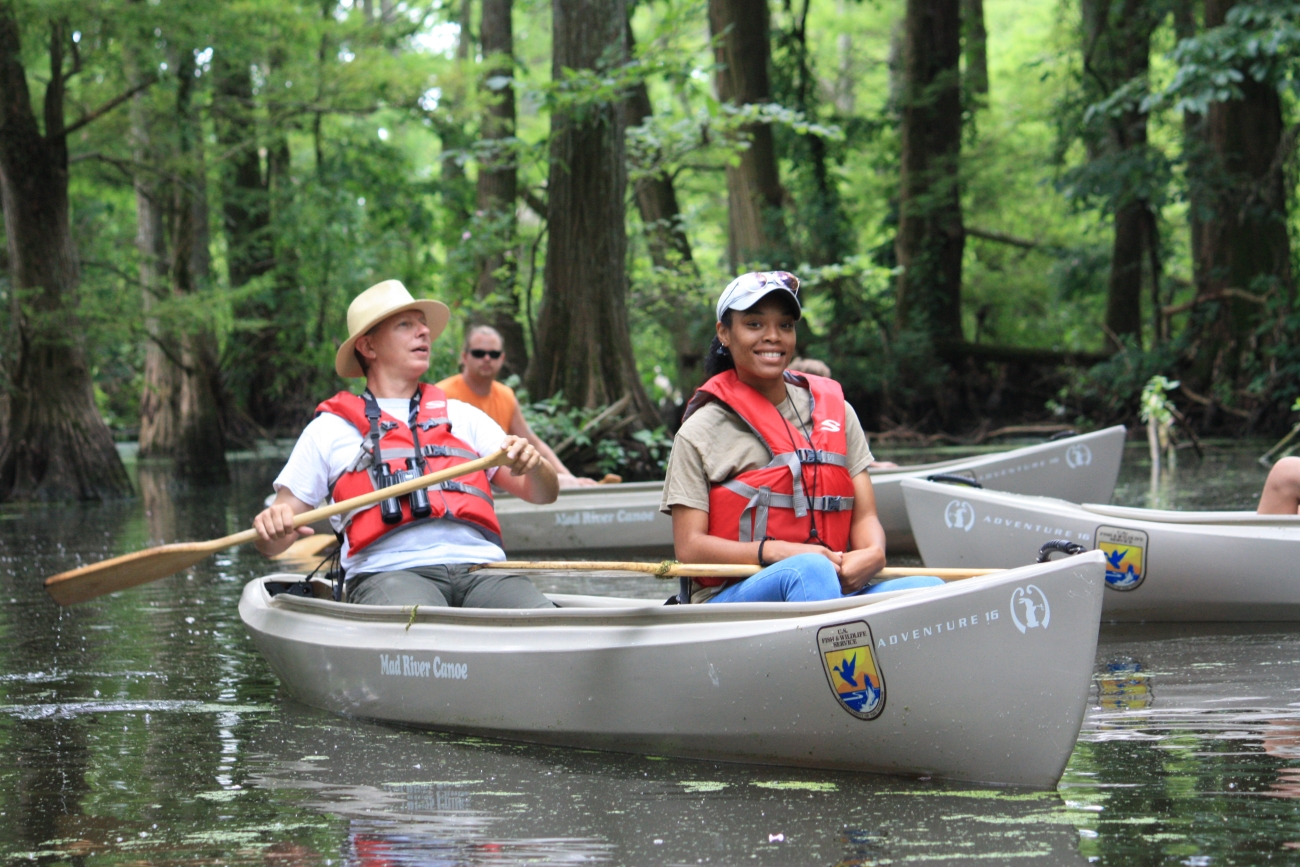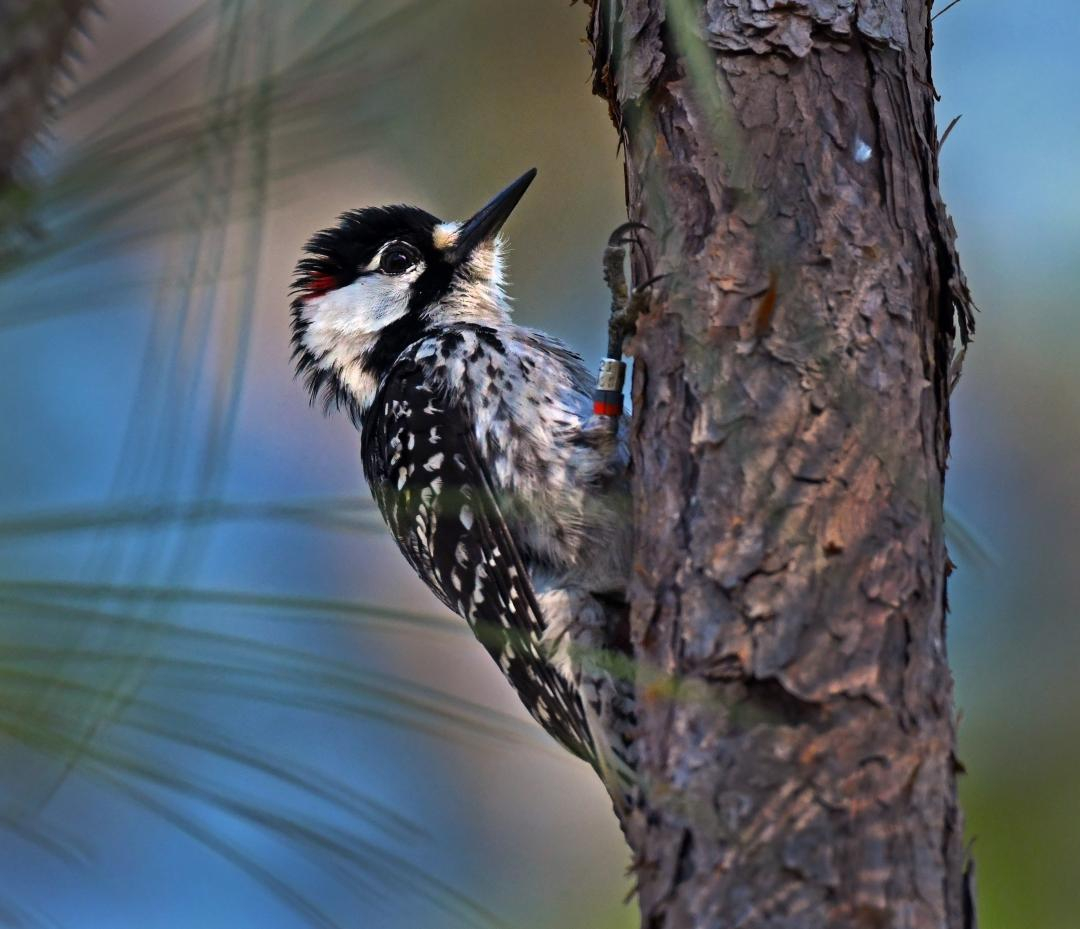Lee Wilmot
Celebrate sandhill cranes at a 35th anniversary that stretches across millennia
 Thousands of sandhill cranes winter at the confluence of the Hiwassee and Tennessee rivers in Birchwood, Tennessee. The 35th edition of the Sandhill Crane Festival is set for Jan. 16-17. TWRA
Thousands of sandhill cranes winter at the confluence of the Hiwassee and Tennessee rivers in Birchwood, Tennessee. The 35th edition of the Sandhill Crane Festival is set for Jan. 16-17. TWRA
Come watch the cranes and their feathered friends and observe an East Tennessee tradition
Lee Wilmot is statewide information specialist for the Tennessee Wildlife Resources Agency.
BIRCHWOOD — The 35th Tennessee Sandhill Crane Festival is set for Jan. 17-18 at the Hiwassee Wildlife Refuge, Cherokee Removal Memorial Park, and Birchwood Community Center. The festival celebrates the thousands of sandhill cranes that stop over or spend the winter on or near the refuge. It is also an opportunity to focus attention on the rich heritage of the state and the Native American history of the area.
The free event runs 8 a.m. to 4 p.m. each day and includes free shuttle transportation from the Birchwood Community Center to the Cherokee Removal Memorial Park and the Hiwassee Wildlife Refuge and parking is available at the Birchwood Baptist Church. Visitors will notice a change this year regarding parking. A parking map can be found on the festival webpage.
Beginning in the early 1990s, the recovering population of eastern sandhill cranes began stopping at the Hiwassee Refuge on their way to and from their wintering grounds in Georgia and Florida. TWRA has been managing the refuge for more than 60 years for waterfowl, and it provides sandhill cranes with a combination of feeding and shallow water roosting habitat. Thousands of birds now spend the entire winter at the confluence of the Hiwassee and Tennessee rivers. The Hiwassee Refuge comprises about 6,000 acres.
More land comes together for Hatchie Bottom conservation
 Canoeists enjoy a paddle along the Hatchie River in West Tennessee. A recent land acquisition brings the total of bottomland protected in the river corridor to 37,000 acres. U.S. Fish and Wildlife Service
Canoeists enjoy a paddle along the Hatchie River in West Tennessee. A recent land acquisition brings the total of bottomland protected in the river corridor to 37,000 acres. U.S. Fish and Wildlife Service
Hatchie Bottom property will join more than 30,000 acres of protected lands along river corridor
Lee Wilmot is a public information officer for the Tennessee Wildlife Resources Commission.
NASHVILLE — The Tennessee Wildlife Resources Agency in partnership with The Nature Conservancy of Tennessee (TNC) and The Conservation Fund (TCF), announced the acquisition of the Hatchie Bottom property, a 7,457-acre expanse of ecologically rich bottomland hardwood forest along the Hatchie River.
The acquisition represents a major milestone in Tennessee’s Conservation Legacy initiative and fulfills a longstanding priority in the Tennessee State Wildlife Action Plan to protect and preserve critical wildlife habitat. The property will be managed as a new wildlife management area (WMA), and will also provide new opportunities for hunting, fishing, wildlife watching, and outdoor recreation.
“The Hatchie Bottom acquisition is a powerful example of what we can achieve when conservation partners come together with a shared vision for Tennessee’s natural heritage,” said Gov. Bill Lee. “This acquisition reflects our commitment to safeguarding the state’s most treasured landscapes while expanding opportunities for Tennesseans to connect with the outdoors. It’s an investment in our environment, our communities, and the generations to come in the Volunteer State.”
Tennessee partners with feds to return red-cockaded woodpecker to rightful range
 The state of Tennessee is partnering with the U.S. Fish and Wildlife Service to reintroduce the red-cockaded woodpecker to the mixed-pine forests of the state. Renee Bodine/USFWS
The state of Tennessee is partnering with the U.S. Fish and Wildlife Service to reintroduce the red-cockaded woodpecker to the mixed-pine forests of the state. Renee Bodine/USFWS
The threatened woodpecker was extirpated from Tennessee by 1994 due largely to fire suppression and loss of habitat
Lee Wilmot is a Tennessee Wildlife Resources Agency information specialist.
NASHVILLE — The Tennessee Wildlife Resources Agency will partner with the Tennessee Department of Environment and Conservation and the U.S. Fish and Wildlife Service to reintroduce the Red-cockaded Woodpecker (RCW), a species extirpated from Tennessee in 1994.
“The return of the red-cockaded woodpecker is not just a biological milestone—it’s a triumph of collaboration for all Tennesseans,” said Gov. Bill Lee. “From land acquisitions in the 1990s to recent restoration efforts, I am proud this project reflects the power of shared vision and long-term commitment that benefits the Volunteer State. This is conservation at its best, and a promise kept to the land, the people, and future generations of Tennesseans.”
The red-cockaded woodpecker, once native to upland mature pine and oak-pine savannas in Tennessee, was extirpated from the state due to fire suppression, logging of old-growth pines, and habitat fragmentation. The last known such woodpecker in Tennessee was observed in 1994 in Cherokee National Forest.
Join TWRA and allies at the first Tennessee Biodiversity Summit
![Tennessee Biodiversity Summit Logo]() Participants will learn about state wildlife plans, educational techniques and efforts to stem declining biodiversity across the state and Southeast
Participants will learn about state wildlife plans, educational techniques and efforts to stem declining biodiversity across the state and Southeast
Lee Wilmot is a TWRA public information officer.
MURFREESBORO — The Tennessee Wildlife Resources Agency announces the inaugural Tennessee Biodiversity Summit, an event celebrating the state’s rich habitats and multitude of species.
The summit is set for 8 a.m. to 4 p.m. Oct. 22 at Middle Tennessee State University. All wildlife enthusiasts, including experts, birdwatchers, hunters, and anyone with an interest in nature, are invited to participate in this experience packed with opportunities to learn about wildlife, habitats, and conservation in Tennessee.
Eight dynamic speakers will deliver presentations centered on this year’s theme, Tennessee’s Biodiversity: Past, Present, and Future, highlighting some of the current wildlife projects taking place across the state. Participants will also learn about the updated State Wildlife Action Plan, a federally guided blueprint to prevent the decline of biodiversity. This plan engages a broad array of partners, including other government agencies, conservation groups, private landowners, and others in the development process, many of which will be educating at the event.
TWRA warns of bird flu spikes throughout Tennessee; urges caution from hunters, farmers and bird watchers
 Even small backyard flocks, such as the one seen here in South Knox County, are susceptible to fatal avian influenza. The state of Tennessee issued guidelines and warnings as the number of bird flu outbreaks soars. Thomas Fraser/Hellbender Press
Even small backyard flocks, such as the one seen here in South Knox County, are susceptible to fatal avian influenza. The state of Tennessee issued guidelines and warnings as the number of bird flu outbreaks soars. Thomas Fraser/Hellbender Press
If you have birdfeeders at home, remove any dead birds you may encounter and stop feeding; minimize any poultry/wildlife interactions
Lee Wilmot is a TWRA information specialist. This story will be updated.
NASHVILLE — The Tennessee Wildlife Resources Agency is reminding hunters to remain vigilant and take appropriate precautions as reported cases of Highly Pathogenic Avian Influenza (HPAI) increase among wild birds, backyard domestic flocks and commercial poultry flocks in the Southeast. HPAI is highly contagious among bird populations and is known to be deadly for domestic fowl.
(California Gov. Gavin Newsom on Dec. 18 declared a state of emergency in California as cases in that state jump dramatically).
“Numerous states in the Mississippi Flyway are reporting HPAI detections that are leading to dead and dying birds, mainly snow geese,” said Jamie Feddersen, TWRA Migratory Gamebird Coordinator. “Tennessee is also finding ducks and geese with HPAI. Hunters should follow safety precautions when handling these birds.”
“Since March 2022, Tennessee has confirmed numerous cases of Highly Pathogenic Avian Influenza in wild birds, including ducks, Canada geese, vultures and a Bald Eagle,” said TWRA Wildlife and Forestry Chief Joe Benedict. “We urge homeowners and hunters to take precautions to prevent the spread of the disease in Tennessee and to protect wildlife and poultry populations.”
 Participants will learn about state wildlife plans, educational techniques and efforts to stem declining biodiversity across the state and Southeast
Participants will learn about state wildlife plans, educational techniques and efforts to stem declining biodiversity across the state and Southeast